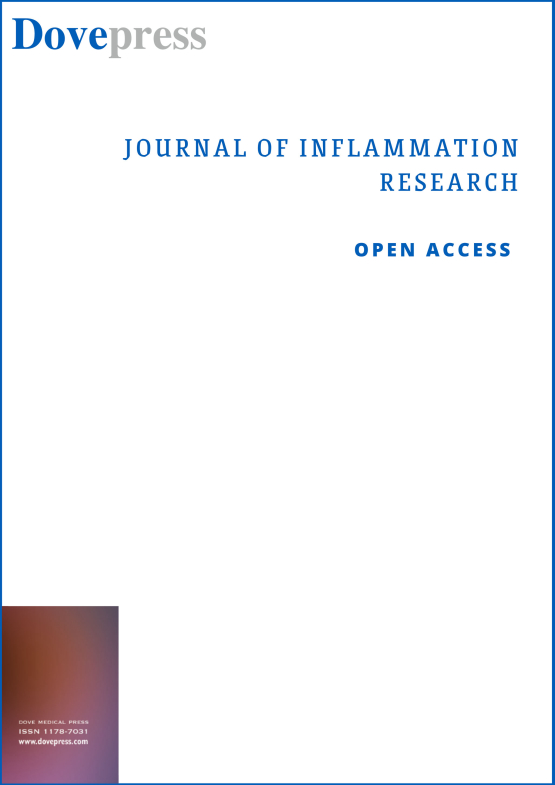Submit a Manuscript to the Journal
Journal of Inflammation Research
For an Article Collection on
Neutrophils in a New Light: Emerging Roles in Inflammation
Manuscript deadline


Article collection guest advisor(s)
Dr. Tomasz W. Kaminski,
Versiti Blood Research Institute
tkaminski@versiti.org
Neutrophils in a New Light: Emerging Roles in Inflammation
The Journal of Inflammation Research, together with Guest Advisor Dr. Tomasz Kaminski, is pleased to invite you to submit your research to the upcoming Article Collection “Neutrophils in a New Light: Emerging Roles in Inflammation”.
Neutrophils are among the most abundant and evolutionarily conserved components of the innate immune system, long recognized for their frontline role in microbial defense and acute inflammation. However, our understanding of these cells has significantly evolved. Beyond their classical functions, neutrophils are now appreciated as highly plastic and multifunctional cells with the capacity to influence a wide range of immune responses, including those involved in chronic and sterile inflammation, tissue repair, autoimmunity, and even cancer.
This proposed Article Collection of the Journal of Inflammation Research aims to highlight the growing complexity of neutrophil biology and its implications for understanding and treating inflammatory diseases. By assembling a focused collection of high-quality original research articles, reviews, and short communications, this issue will provide readers with a comprehensive and up-to-date overview of the novel roles of neutrophils across diverse inflammatory contexts.
The field of neutrophil research is currently undergoing a paradigm shift. Advances in single-cell RNA sequencing, in vivo imaging, and functional assays have revealed striking heterogeneity among neutrophil populations, suggesting that they are far from being a homogenous cell type. Moreover, their ability to engage in crosstalk with other immune cells, influence adaptive responses, shedding neutrophil extracellular traps (NETs), and contribute to chronic inflammatory states has far-reaching implications for disease progression and therapy.
Despite this, neutrophils remain understudied compared to other immune cells, particularly in chronic disease settings where their roles are less obvious but no less critical. A dedicated special issue in the Journal of Inflammation Research would provide a much-needed platform for consolidating recent discoveries, showcasing state-of-the-art methodologies, and highlighting clinical relevance. Such an issue is well aligned with the journal’s mission to advance understanding of inflammatory mechanisms and foster translational insights into inflammation-related disorders.
This Article Collection will explore the evolving landscape of neutrophil biology with particular emphasis on novel and disease-relevant functions. The field in which submissions are welcomed address the following (but not limited to) subtopics:
- Neutrophil heterogeneity and plasticity: Insights from single-cell and spatial profiling.
- Neutrophil roles in chronic inflammation and autoimmunity: Contributions to diseases such as lupus, rheumatoid arthritis, and vasculitis.
- NETs in inflammation: Molecular mechanisms, regulation, and pathological consequences.
- Tissue-specific neutrophil behaviour: Adaptation and function in lungs, liver, gut, CNS, and tumors.
- Neutrophil interactions with adaptive immunity: Mechanisms of T cell modulation and antigen presentation.
- Neutrophils in infection and viral inflammation: Including roles in COVID-19, sepsis, and chronic infections.
This Article Collection will serve as a comprehensive reference for scientists and clinicians working across immunology, inflammation, infectious disease, and translational medicine. By focusing on neutrophils, a cell type once considered simple but now recognized as highly influential, this issue aims to stimulate further research and innovation in the field of inflammation.
Upon submission, please use the promo code 3A3E6 for 10% off the advertised article processing charge and indicate that your manuscript will be considered for the “Neutrophils in a New Light: Emerging Roles in Inflammation” Collection. Please contact the Commissioning Editor, Ashley Ambros, with any questions concerning this Collection.
Keywords: Neutrophils biology; innate immunity; inflammation resolution; neutrophil heterogeneity; neutrophil extracellular traps (NETs)
Dr. Tomasz W. Kaminski earned his doctoral degree from the Medical University of Bialystok, Poland. During his PhD training, he focused on studying hemostasis disturbances in chronic kidney disease. He joined the Sundd Lab as a postdoctoral associate in 2019. Dr. Kaminski’s research centers on innate immune mechanisms in platelets and neutrophils, as well as the pathophysiology of thrombo-inflammation. He employs state-of-the-art intravital microscopy techniques to capture real-time interactions between neutrophils and platelets during the initial phases of immune system activation. His work exhibits a truly interdisciplinary nature, as he investigates the neutrophil and platelet biology in hemophilic arthropathy, sickle cell disease and influenza. Dr. Kaminski has been recognized with numerous awards from both national and international societies and institutions. Furthermore, his research endeavors receive support from external funding sources.
Benefits of publishing open access within Taylor & Francis
Global marketing and publicity, ensuring your research reaches the people you want it to.
Article Collections bring together the latest research on hot topics from influential researchers across the globe.
Rigorous peer review for every open access article.
Rapid online publication allowing you to share your work quickly.
Submission Instructions
All manuscripts submitted to this Article Collection will undergo desk assessment and peer-review as part of our standard editorial process. Guest Advisors for this collection will not be involved in peer-reviewing manuscripts unless they are an existing member of the Editorial Board. Please review the journal Aims and Scope and author submission instructions prior to submitting a manuscript.
